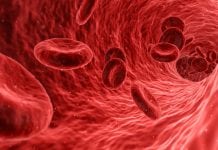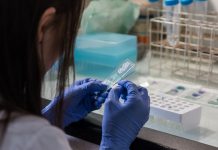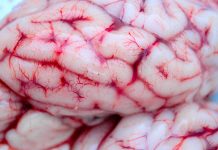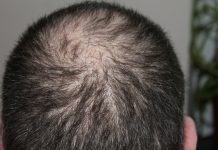Trial launches to test new treatment combination for leukaemia patients
A clinical trial testing a new treatment combination for children and adults with leukaemia has been launched today through the Combinations Alliance.
The aim of...
Lower heart disease risk could prevent frailty in old age
Older people who have a very low heart disease risk are also found to have little frailty, meaning that frailty could be prevented, new...
New research could improve current cancer treatments
Combining existing chemotherapy drugs with cancer treatments that cut off blood supply to a tumour could be more effective, new research from the University...
A new approach to the treatment of prostate cancer
By understanding the production of specific human sex hormones, it can help develop new treatments for prostate cancer and polycystic ovary syndrome, a new...
How depression can negatively affect cognitive function
People with depression or anxiety will have an increased risk of reduced cognitive function due to the advanced speed with which the brain ages,...
An egg a day could reduce risk of cardiovascular disease
By consuming one egg every day it could help reduce the risk of cardiovascular disease (CVD), according to a new study carried out in...
How artificial intelligence is vital in improving cancer care
Following UK Prime Minister Theresa May’s speech regarding artificial intelligence’s (AI) potential of saving thousands of lives by improving cancer care, experts have weighed...
Is a warmer body better at fighting infections and tumours?
New research from the universities of Warwick and Manchester, UK, has shown that a higher body temperature speeds the body’s response to fighting infections...
Obesity is linked to the frequency of smoking and risk of taking up smoking
A new study published this week by the BMJ has revealed that obesity is associated with an increased risk of the frequency and taking...
High intensity exercise found to not benefit those with dementia
A new trial published by the BMJ has found moderate to high intensity exercise does not slow down cognitive impairment in older people with...
How are mood disorders and circadian rhythm disruption linked?
A study led by the University of Glasgow, UK, has found that disrupted circadian rhythm increases the risk of an individual developing mood disorders...
New €12m research project approved to enhance prostate cancer care
The Innovative Medicines Initiative (IMI) has approved a new five-year project, PIONEER, with the goal to ensure all European men diagnosed with prostate cancer...
Spinal surgery found as effective as injections for osteoporosis pain relief
Spinal surgery (vertebroplasty) has been deemed just as effective to relieve the pain of osteoporosis as the placebo or the so-called ‘sham’ procedure in...
Is there a better treatment for prostate cancer on the horizon?
A new study from the University of Manchester, UK, has found a way to identify men with locally advanced prostate cancer who are less...
Optimising gut health to fight against leading chronic diseases
A spin-off company from the Department of Biotechnology at Lund University, Sweden, has announced it will start investigating if its technology platform can be...
Probiotics, breastfeeding could reduce antibiotic resistance in children
Combining probiotics and breastfeeding can help to reduce potential antibiotic resistance in children, according to new research at the 51st ESPHGHAN Annual Meeting.
Infants who...
Hepatitis B virus found in DNA from 4,500-year-old skeletons
Bronze Age human skeletons have been found in burial sites across Europe and Asia that contain an extinct strain of the Hepatitis B virus...
New virtual reality therapy proves successful in treating anxiety
A psychology clinic based in Harley Street, London, UK, is pioneering the use of virtual reality (VR) as a treatment for a range of...
Osteoporosis drug side effects could be key to treating hair loss
A drug new has been found which could help men and women suffering from hair loss, according to researchers from the University of Manchester’s...
Less risky new blood test developed for peanut allergy diagnosis
Scientists at the Medical Research Council (MRC), UK, have developed a simple blood test which will be a less risky and more definitive way...



























